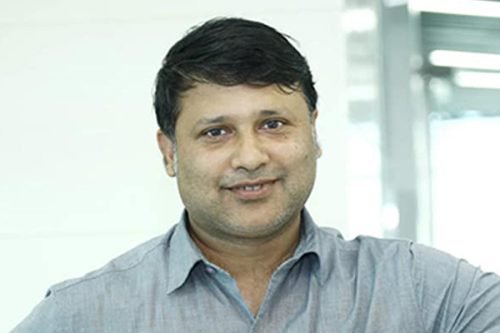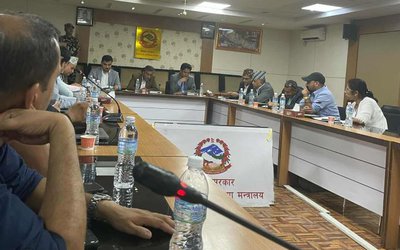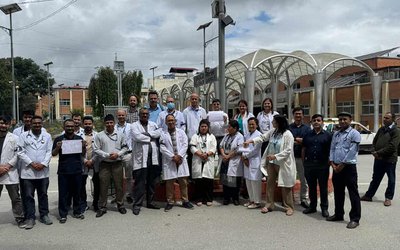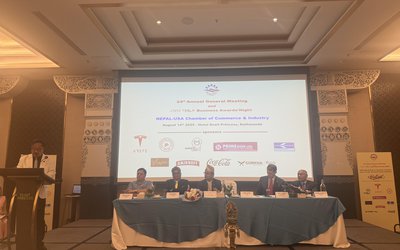
Nepal’s healthcare sector is facing a serious dilemma and legal complexity. The Consumer Protection Act and court rulings have demoralized doctors and hospitals. As healthcare is a sensitive service, expert opinion and a balanced legal process are essential.
In recent years, a troubling ambiguity has emerged in Nepal’s healthcare sector. On one hand, statistics show that a large portion of the population still lacks access to quality healthcare. On the other hand, consumer courts have started issuing one-sided decisions and awarding compensation worth millions against healthcare providers.
Medical Profession is Not a Productive Industry
The medical profession is not a product-producing enterprise where customers pay money and receive guaranteed products or services. Nor is it a mechanical system where the same process yields identical results for everyone. In reality, medical science is a sensitive and complex human practice—each patient is different, every body reacts uniquely, and each disease has its own nature and severity.
Difference Between Medical Services and Products
When a consumer buys a mobile phone, they expect it to function, have clear sound, and a responsive touchscreen. If any part fails, the seller or company is held accountable because production and testing follow uniform standards.
However, when a doctor administers the same medicine to two different patients, the effects can vary. The same surgical procedure may succeed in one but cause complications in another. This is not always due to medical error but can be caused by the patient’s physiology, disease condition, medication efficacy, treatment timing, and many other factors.
Medical Service: A Collective Process
Healthcare is not solely the doctor’s responsibility.
Diagnosis
Diagnosis and treatment are based on patient history and reports from tests like X-rays, ultrasounds, CT scans, MRIs, and lab results—prepared by different specialists or technicians. Errors here can mislead the diagnosis.
Drugs and Drug Quality
Though prescribed by a doctor, the effectiveness of a medicine depends on the manufacturer, regulatory bodies, and importers. In Nepal, many drugs are still on the market without quality testing.
Nursing Services
Nurses play a backbone role in the treatment process—administering medicine on time, correct dosage, and providing essential care.
Administrative Structure
Hospital management is equally vital—availability of equipment, timely operation theater access, and emergency coordination all affect patient outcomes.
Patient and Family Involvement
If patients do not take medication as advised, delay surgery, or ignore medical advice, treatment can fail. But this is rarely considered when assigning blame.
Why the Justice Process is Incomplete
Recent cases compel us to reflect. A critically ill patient is brought to the hospital. The doctor tries their best, but the patient dies. Family members accuse the doctor of negligence. The case goes to court, where no expert medical opinion is sought, and no scientific review of diagnosis and treatment is done. Still, the court orders millions in compensation for “negligence.”
Such decisions, based on emotion and one-sided reasoning, are not only unjust—they're dangerous. They expose skilled doctors to legal risk, discourage new doctors, and erode trust in the healthcare system.
Legal View: Misuse of the Consumer Protection Act
Section 2 of the Consumer Protection Act, 2075 (2018) includes healthcare under the definition of "service." But the Act only defines provider responsibility—it does not recognize the unique nature of medical services, their complexity, or inherent uncertainties.
This Act is suited for industrial products and consumables, not for biologically personalized and technology-driven medical services. When consumer courts deliver verdicts without medical expert opinions, it violates the essence of justice.
Role of a Doctor: Service, Not a Guarantee
A doctor is not a guarantee agent. They apply their knowledge, experience, and available resources to do their best. If the outcome isn’t favorable, that doesn’t automatically imply “negligence.”
For example, if a surgeon injures a nerve during an operation, determining whether it was a complication or negligence requires investigation by experts—not assumptions.
Currently, courts often treat doctors like defendants in criminal cases, making doctors hesitant to take life-saving risks due to legal fears.
Global Practice vs. Nepal
In developed countries, when medical errors occur:
- Expert medical committee reports are required
- Ethical boards are consulted
- Doctors are legally protected
But in Nepal, these safeguards are absent. Here, doctors are presumed guilty first. As a result, more time and mental energy is spent defending legally than treating medically.
Recommendations from Health Institutions
On Asar 17, 2082 (July 1, 2025), a joint discussion led by Nepal Medical Association (Koshi branch) produced key suggestions:
Restructure Consumer Court
In cases involving health services, courts must include medical experts. Without expert input, decisions cannot be considered fair.
Increase Number of Judges
Replace the single-judge system with at least two judges to allow for majority-based decisions.
Clear Definition of Medical Negligence
Medical errors or negligence must not be compared to minor discomforts like "stomach pain after eating momo" or "weight loss." A separate scientific, ethical, and legal process should be developed.
Practical Penalties and Compensation
Demanding millions in compensation for services costing a few hundred rupees is unreasonable. Penalties should be realistic and tailored to Nepal’s context.
Protecting Morale
The current environment is demoralizing doctors, nurses, and technicians. It discourages local service and fuels brain drain. The state must protect the dignity of the medical profession.
Conclusion: Dialogue, Expertise, and Balance
Healthcare is not like selling a product. It is a sensitive service where minor misunderstandings can lead to major injustices.
Therefore:
- Courts must mandate expert medical committees in healthcare cases.
- Raise public awareness that medical service involves shared responsibility, not mere consumption.
- Doctors must be seen as responsible citizens, not criminals.
- The government must establish separate legal and regulatory protections for healthcare.
- Create an environment where healthcare workers feel confident and committed to serving in Nepal.
- The future of our health system depends on respect, balance, and transparency.

Dr. Bal Krishna Sah, Secretary, Nepal Medical Association – Koshi Branch, Obstetrician and Gynecologist, Nepal Medical Council No. 7313 affiliated with Morang Cooperative Hospital, Biratnagar.
This article is reproduced from Nepali edition of Onlinekhabar.com. Given the importance of issues for public, New Spotlight has translated it.















